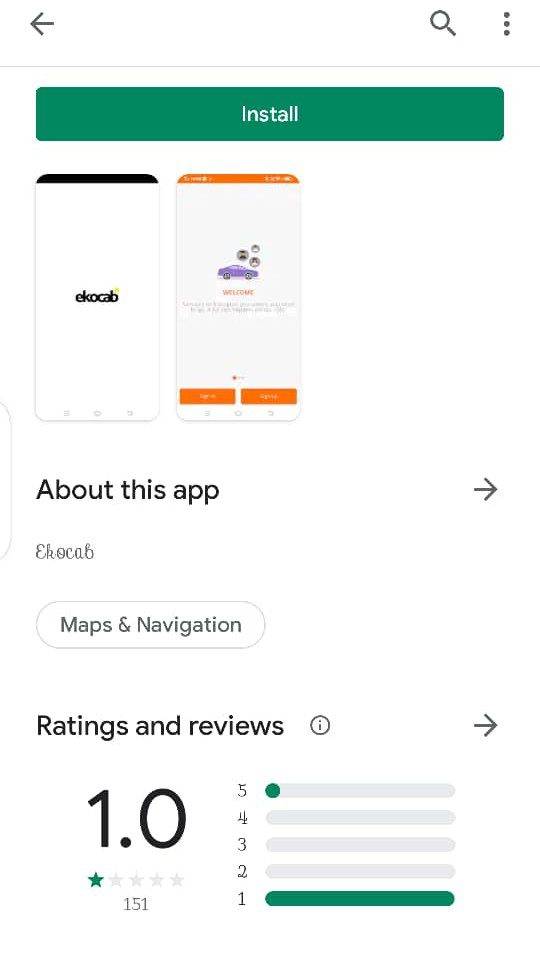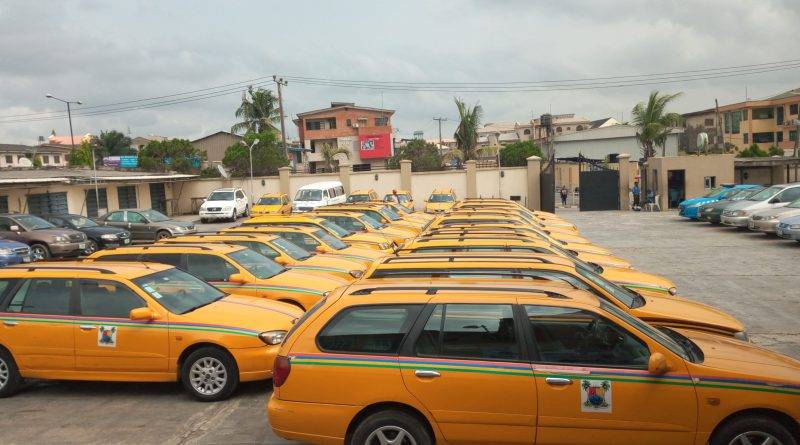Did The Embattled Ekocab Co-Founder Really Admit To Lobbying & Intentions Of Selling User Data?

Out of nearly 3 million apps on Google’s Play Store, Ekocab has the lowest ratings and worst of reviews, no thanks to aggrieved Nigerian individuals, mostly Lagosians, who have made it a point of duty to ‘cancel’ the newly-launched ride-hailing app and get it booted out of Play Store.
Ekocab said it launched in partnership with the Lagos State Government (LASG) to upgrade the yellow taxi system in the State and give yellow cab operators a much-needed lift while maintaining that it is also open to unbranded cars vehicles. The platform was also quick to emphasize that it is not government-owned, as gathered by WeeTracker.
But even if all that were true, they were always going to face a tough crowd due to their branding and positioning. Plus the timing of their launch was rather suspect — just a month after commercial motorcycles/tricycles were outlawed in key areas of the State (remember the uproar?), and during a period when players like Uber and Bolt seem to be the targets of a perceived witchhunt.
All these made Ekocab an easy target for the vitriol of the people, so to speak. To many people, they are cronyism-inspired contraption and their launch is just another confirmation of a long-held theory that the LASG has always been about monopolising the transport sector and e-hailing players are living on borrowed time.

Although the Ekocab app is already on Play Store, the service is not due to commence until March 17 but the platform may be dead-on-arrival. And that’s because the Co-Founder of the platform, Segun Cole, may have made matters worse while trying to make things better yesterday.
Well, many already hold a strong opinion that Ekocab is a government-sponsored monopoly masked as a free enterprise. And Segun may have unwittingly confirmed this yesterday when he admitted to lobbying, being a referee and a player in the same game, and intentions of selling user data.
In a lengthy Twitter thread, the Ekocab co-founder gave the low-down of how Ekocab came about in the hopes that it would calm the brewing storm but his words mostly provoked a raging tempest.
2. Sometime back 2015, Uber refused to be Categorized as a Transport Operator, called themselves a digital App connecting riders and drivers only. They created this messaging Architecture and it was established Globally.
— _Sir_Cole (@IamnotChuckBass) March 11, 2020
Segun started by announcing that he has been a Policy Consultant on New Mobility to State Governments, advising them on how to better regulate the Industry and proffering solutions.
“Sometime back 2015, Uber refused to be categorized as a Transport Operator, called themselves a digital app connecting riders and drivers only. They created this messaging architecture and it was established globally,” he tweeted.
“Lagos State wanted to better understand their operations and bring them under the Tax Infrastructure. We advised them to set up a Sandbox framework while collecting data to help them study the operations. They did.”
He added, “On the other hand, local taxis, including Metro/Red and the rest were complaining of diminishing profit margins and source of income. The argument was that this was their major source of Income, unlike Uber drivers that did this part-time mostly.”
Then, Segun and Co advised the government regulators to tell the local taxis to go develop their own tech. That way, regulators could draft regulations that would cater to all digital apps, whether Uber or owned by players that owned cars.
Segun also revealed that he offered to develop the app that will onboard the local taxi operators because the technology was expensive. And the government agreed, facilitating an introduction to the state metro taxi operators.
He said the idea was to give them a fighting chance, to help them upgrade. “We understand it’s going to take more than just technology, so we trained and also did Culture Re-orientation for them.”

And according to him, that is the story behind the creation of Ekocab, he merely took advantage of an opportunity.
But what the masses took from that, not that Segun’s explanation was ever going to be convincing, was that he has been in bed with the regulators all along and he is just posing as the founder of a company that is really owned and run by the higher-ups.
And there are other revelations in the said Twitter thread that doesn’t help Ekocab’s cause. Segun admitted to lobbying, saying it’s no crime, and having bootstrapped the entire project up to this point, people are trying to sabotage his work because he intends to trade user data “for good.”
As he put it,
“I can’t Speak for the Government, what I can say is this, this isn’t Government-owned, no powerful person in the Government owns this. Lobbying isn’t Illegal. Every player should be deliberate about collaboration with Regulators.”
“Why are think there is pressure from some corners of Ekocab is that we are going to be providing the regulators a Dashboard to better track commuter traffic patterns, to better help solve traffic problems.
“This mobility data would also provide information like accident rates, speed rates, and e.t.c This doesn’t sit well with some folks, because this can also reveal some information that would expose shady activity.
“The point is this, At Ekocab, we want to take things further. There’s barely a Company that’s not selling Users data. Ekocab Mobility Data that doesn’t invade privacy and trade secrets would be sold and profits shared with our drivers.”
Parts of the thread read that the Lagos-born entrepreneur had no hand in the infamous Okada ban and that he even attempted to get the authorities to overturn the ban and instead use the regulation model employed in parts of Asia.
Segun also maintained that he had nothing but love for Uber, Bolt, and bike-hailing companies and that the road was big enough for everyone, even as they all contribute to the traffic congestion.
But he was probably pouring water on a rock all along as Ekocab is probably closer to the “government-owned tag” than it was yesterday, especially as Segun is now being rumoured to be a nephew to current Governor of Lagos State, Babajide Sanwo-Olu.